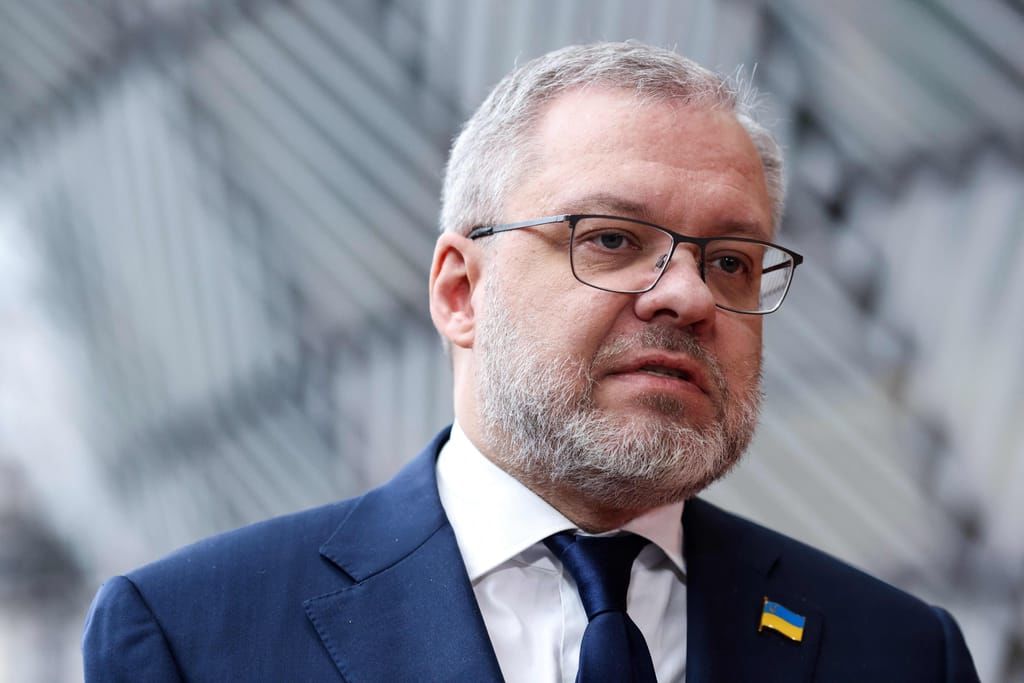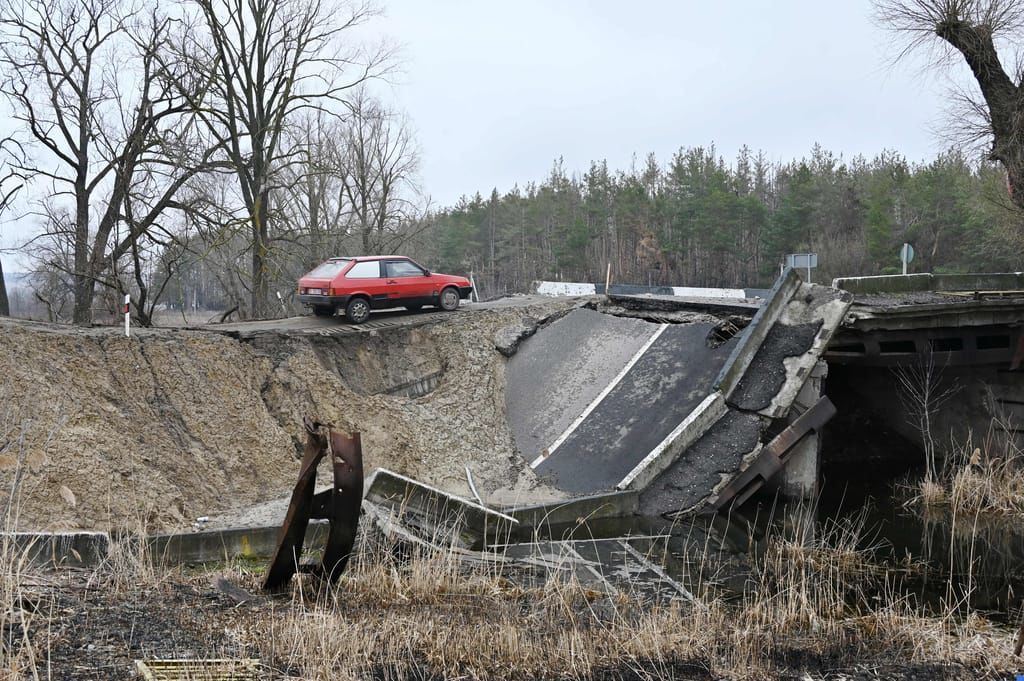Hong Kong News

Kyiv says Big Oil should pay to rebuild Ukraine’s shattered infrastructure
Major international energy companies that raked in bumper profits because of price spikes over the course of the war should pour some of that cash into rebuilding Ukraine's shattered power infrastructure, Kyiv's Energy Minister German Galushchenko told POLITICO.
In a wide-ranging interview, Galushchenko also argued the West needed to close sanctions loopholes on Russian energy sales to prevent an "endless war" in Ukraine, and said Kyiv could provide alternative nuclear fuel so some EU countries could wean themselves off their dependence on Russian supplies.
"A lot of energy companies get enormous windfall profits due to the war. So we estimated this at more than $200 billion," Galushchenko said on a visit to Brussels. "They get this money because we are fighting, because of the war."
"I think it would be fair to share this money with Ukraine. I mean, to help us to restore, to rebuild the energy sector," he added.
The $200 billion figure given by Galushchenko has been widely cited as the profits of five top companies — BP, Chevron, ExxonMobil, Total and Shell — in 2022. The Kyiv School of Economics estimates the damage to Ukrainian infrastructure at close to $140 billion.
The minister noted that a Lithuanian company, Ignitis Group, is already looking to hand over some 10 percent of its profits to help reconstruction in Ukraine and said bigger companies should follow suit.
Galushchenko also warned that Moscow would be able to wage a perpetual war in Ukraine for as long as the Kremlin is able to rake in cash from selling fossil fuels. Despite sanctions against Russian oil imports imposed by the EU and a price cap set by the G7 club of rich democracies, he warned that Russian President Vladimir Putin was still finding ways to beat international embargoes.
"If on one side you're trying to restrict them and on the other you're giving them opportunities, you'll allow them to make endless war," he complained, arguing the Kremlin was using its energy export earnings "not to help Russian people to live better" but "to produce weapons" and keep the war going.
"This money costs Ukrainian lives," he said.
Russia boasts that it has diverted its oil supplies to friendly countries such as China and India, but there are signs that restrictions from big Western markets are biting hard.
Calculations by Bloomberg on March 3 suggested that tax revenues from oil almost halved in February from a year ago, while gas revenue dropped 42 percent from a year earlier given reduced sales to Europe. The EU's ban on Russian oil has been a key factor is torpedoing the price of Urals crude.
Keen to keep up that pressure, Galushchenko protested that some oil was still seeping under the cordon.
 Ukraines Energy Minister German Galushchenko
Ukraines Energy Minister German Galushchenko
"It's important not to help Russia to escape sanctions," he said, arguing that "sanctions are efficient only if you have no way to escape and we see the Russians are trying to escape — in some cases, they find a way."
His warning comes amid recent reports that Moscow's hydrocarbons may be reaching EU countries via Azerbaijan and Turkey. Allegations are also growing that Russian oil has been discreetly sold at prices far exceeding the $60 cap imposed by the G7 in December.
The EU's plan to make the bloc independent from Moscow's fossil fuels before 2030, called RePowerEU, includes encouraging member countries to jointly purchase natural gas, and the Ukrainian minister said his country also wanted in on that program.
While the EU has slashed its oil and gas imports from Russia, the bloc still has 18 Russian-designed VVER reactors — located in Finland, Slovakia, Bulgaria, Hungary and the Czech Republic — for which no alternative fuel supply exists so far.
Rather than continuing to rely on Russia, they could soon buy their supplies off Kyiv, he said. Ukraine is in the process of making specially-tailored replacement nuclear fuel along with Westinghouse of the U.S. that could be ready by "the beginning of next year."
 A destroyed bridge over the Murom river near Russkiye Tishki
A destroyed bridge over the Murom river near Russkiye Tishki
He also called on the European Commission to set an EU-wide target for eliminating countries' reliance on Russian nuclear technology, while reiterating Ukraine's call to bring sanctions against Moscow's state-run atomic giant Rosatom for its role in overseeing the occupied Zaporizhzhia nuclear power plant. So far, the EU has refrained from hitting Russia's nuclear industry with sanctions.
"They are participating in the capture and illegal operation of [this] nuclear station," Galushchenko said.
Comments












